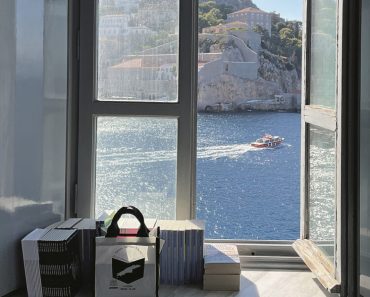Christos Stylianides, Minister of Maritime Affairs and Insular Policy, revealed in December 2023 that “over 10,000 traditional fishing vessels were unfortunately destroyed in previous years.
“It is a shame that such wealth was lost. Many of these boats could be salvaged and converted at little cost into private or business pleasure boats. We have lost this wealth, so let us not lose even one more [boat],” he added.
The Financial Instrument for Fisheries Guidance financed the reduction of Greek fishing capacity in all categories in two periods, 1993-1999 and 2000-2006.
The fund provided resources either for destroying the vessels or for transferring them to a third country.
“With the above funding, and in particular with the weightier funding for dismantling rather than preserving vessels, it was possible for many fishermen to destroy their vessels and receive compensation that … in many cases exceeded the commercial value of the vessel,” the HCMR report noted.
In this way, many wooden boats were destroyed, especially older ones.
“If you don’t destroy the boat but change its usage, you receive less money. Someone might receive 100,000 euros to destroy their boat but only 10,000 euros to change its usage,” the president of the Traditional Boat Association of Greece, Nikos Kavallieros, told BIRN.
The scrapping policy continued under the European Fisheries Fund, EFF, 2007-2013. Fishers had three options – to scrap their vessels, or reassign them for the creation of artificial reefs, or for other usages, such as training, research, exhibitions, etc.
The Greek European Fisheries Fund Operational Programme 2007-2013 provided public aid for the permanent cessation of fishing, allowing for scrapping but also for reassignment of vessels to other purposes outside fishing.
The European Maritime and Fisheries Fund, EMFF, between 2014 and 2020, allowed support for the permanent cessation of fishing without scrapping them in the case of traditional wooden vessels, provided that they assumed a land-based heritage function.
The most recent European Maritime, Fisheries and Aquaculture Fund, EMFAF, for Greece for 2021-2027, allows for the permanent cessation of fishing activities again either by scrapping or decommissioning boats and refitting them for other activities.
While many in Greece argue that EU directives and funds over the years have effectively encouraged the destruction of an ancient maritime craft and tradition, the EU denies that it has actively forced anyone to destroy their boat.
“There is no provision in EU legislation that would oblige fishers to physically destroy their vessel,” a spokesperson for the European Commission told BIRN.
“Since 1999, a lot of different governments have passed, and they have all had the same policy. Who stopped the destruction? Nobody,” Kavallieros said.
“The state machine in Greece is stronger than the Prime Minister, and this machine is based on staff who are too bored to change things … It has nothing to do with any particular party. Right, left, centre, it’s all the same story,” added Barbarigos.







